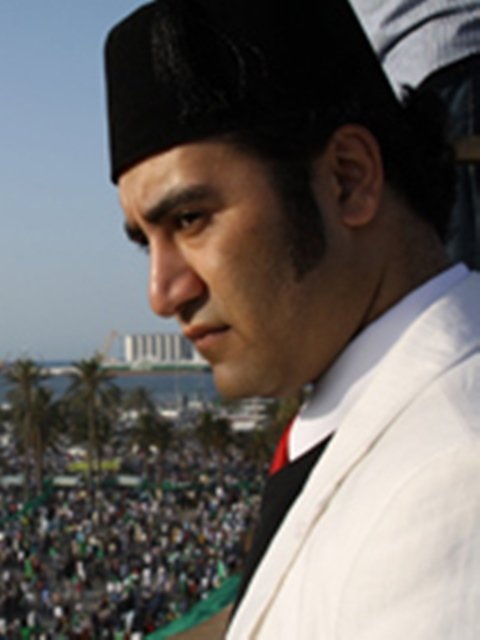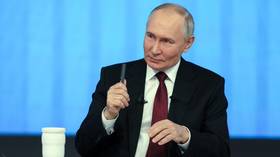Eagles of Empire and economic terrorism: Are vulture funds instruments of US policy?
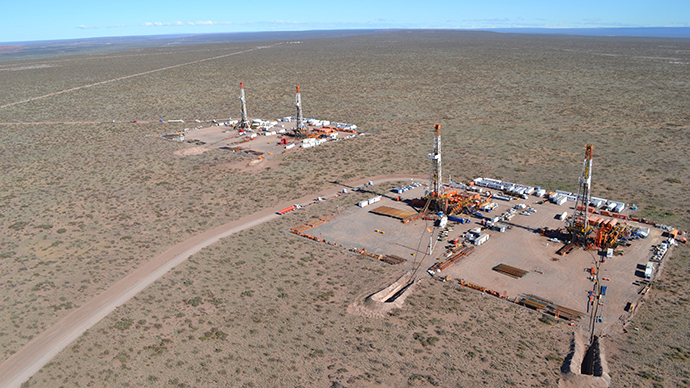
Is it a coincidence that the vulture funds are putting increasing pressure on Argentina as it prepares to develop the world’s second largest shale gas reserves? Are the vultures instruments of foreign policy?
Paranoia or insightfulness in Buenos Aires?
Hours after the US Embassy in Buenos Aires issued a security warning to US citizens either already inside or traveling to the South American country, Argentinian President Cristina Fernandez de Kirchner accused the US of plotting to overthrow or kill her. Speaking during a television broadcast from the Casa de Gobierno on September 30, she explained that “if something happens to me, don’t look to the Mideast, look north” to Washington, DC. She told the Argentine people not to believe anything that the US government was saying, even going as far as dismissing the ISIL/ISIS threat as a US bogeyman.
More or less, at the United Nations she was already cautiously dismissive of the ISIL threats against her when she spoke on September 24. Now, however, President Kirchner connected the dots between the diplomatic situation with Washington and the ISIL threat towards her by stating that “when you see what has been coming out of diplomatic offices, they had better not come in here and try to sell some tall tale about ISIS trying to track me down so they can kill me.”
Instead of asking what led Fernandez de Kirchner to make such accusations against the US government, the question should be what has led to the deterioration of relations and diplomatic ties between Buenos Aires and Washington.
This deterioration has two dimensions or tracks. On the surface it is tied to Argentina’s sovereign debt, its restructuring, and hedge funds in the US. On another track it is tied to petro-politics and shale gas.
Economic and financial terrorism: Deadlier than the ISIL?
In front of the sixty-ninth session of the UN General Assembly and UN Security Council and a meeting of the UN Security Council chaired by US President Barack Obama, Argentina argued that terrorism is not only committed by violent groups that plant bombs, but also by financial entities and organizations that destabilize national economies and make whole societies destitute through speculation and financial manipulation. In Cristina Kirchner’s words, “terrorists are not only those who set off bombs, but also those who destabilize economies, causing hunger, misery, and poverty.”
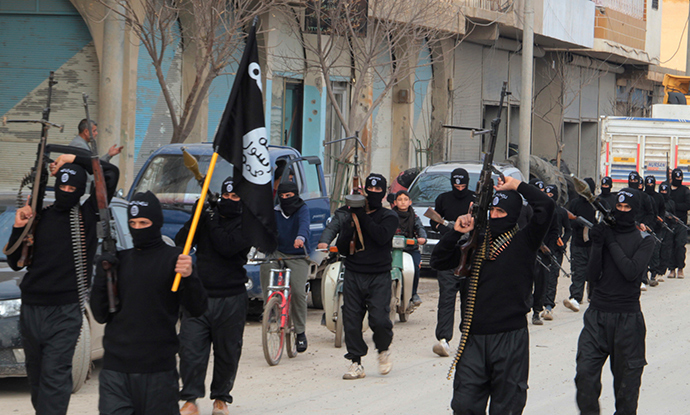
Addressing the growing mythology and international fixation concerning the ISIL in Syria and Iraq, Argentina argued that terrorism is rooted, fuelled, and nurtured through injustice and disparity in the global system. Groups like the ISIL and al-Qaeda are merely the symptoms of something much deeper and much worse. Dismissing Washington’s military methods as unproductive and illogical, Argentina held that to ebb the vicious cycle of violence the world had to address the root causes for the creation of groups like the ISIL and the conditions that make people lose hope.
Kirchner even reminded Obama and the US delegation that they were portraying the current insurgent groups that the world is condemning inside Syria as “freedom fighters.”
The crux of the Argentine thesis was simple: terrorism is also economic and financial, and this form of terrorism is much more lethal. The destruction of economies and the destitution of societies unlock the doors for a toxic mix of anger, ignorance, and blame. This is why Buenos Aires argued that the economic and financial terrorists targeting national economies needed to be identified, challenged, and stopped.
Meet the vultures
Not only was Argentina indignant on September 24, but it was defiant at the UN against the dominant structures of the global system. The Argentines were upset with the US and ten other countries that voted against the establishment of a universal legal formula for dealing with sovereign debt a few days earlier, on September 9.
President Kirchner derided the neoliberal economic policies of the Bretton Woods Institutions—the World Bank and International Monetary Fund (IMF) - and essentially the Washington Consensus. She explained how previous Argentinean governments had followed the recipes and “conditionalities” of the IMF, saying that the IMF’s economic medicine was what economically ruined Argentina in 2001.
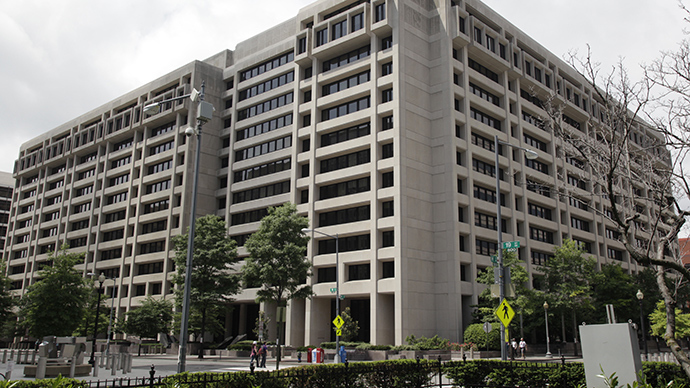
So who are the “economic and financial terrorists” that were being condemned by Argentina?
Part of the answer was mentioned above. The other part has to do with the US hedge funds NML Capital Ltd., which is based in the Cayman Islands, and Aurelius Capital Management.
Since its economic crisis in 2001, Buenos Aires renegotiated its debts, in 2005 and 2010, through new repayment schedules and a reduction of the face values of the debt(s) by 70% to about $13 billion with 92.4 percent of its creditors. A 7 percent minority of the bondholders, however, held out and rejected Argentina’s proposals. These holdouts are hedge funds that have been dubbed as vulture funds. Like real vultures circling and hovering around a dying carcass these bondholders strike distressed economies and take advantage of fiscal crises to make windfall profits.
These predatory hedge funds and private equity funds operate by buying debt at bargain discounts and wait for distresses and defaults. Their strategy is to profit off the defaults and to amplify their profits through maximizing the interest returns on what debtors owe them or to use litigation to sue debtors for even larger amounts that would they would have received if the debt was paid in full.
It is within the framework of the above rationale that NML Capital Ltd. and Aurelius Capital Management have refused to accept any debt swaps or any form of settlement with Buenos Aires. They have tried to derail the Argentineans and prevent them from paying off their debts. This is why they have demanded the full payment of Argentina’s debts on the basis of the face value of approximately $1.33 billion. Ultimately, this would force Argentina into default and increase its other debts by 70 percent.
Even as Kirchner was talking at the UN, Buenos Aires was locked in a legal battle in New York State with the vultures.
Using the US legal system, the vulture funds got Thomas Griesa, a federal judge for the United States District Court for the Southern District of New York, to make an unprecedented ruling to their benefit in 2012. Griesa had ordered Argentina to pay the vultures in full for a recalculated and unrealistic sum. Argentina lost the appeal and the US Supreme Court refused to even hear Argentina’s appeal in June.

Griesa not only awarded the holdouts over 1,600 percent interest on what was owned for a five-year period, but he also blocked Buenos Aires from making its debt payments to its other bondholders until it paid the vulture funds the full recalculated sum. According to the Argentines, Griesa’s “new judicial interpretationimplies that a sovereign country cannot pay creditors who have accepted an exchange offer unless holdouts from the exchange offer are paid in full, effectively granting privileged conditions to holdout creditors.” So a $539 million payment was frozen by the Bank of New York Mellon Corporation, which resulted in a legal appeal from other bondholders on August 15.
The US court ruling had several ramifications and outcomes.
In the first instance, Argentina could not meet such an outrageous demand to pay the vulture funds the principal sum plus 1,600 percent interest for a five-year period. Secondly, due to a “rights upon future offers” clause provided during the negotiations with its other bondholders that promised them the best terms possible, Argentina was put in a predicament by the US court ruling. Under the circumstances brought about by the vulture funds through Judge Griesa, the other bondholders have the right to demand higher payouts that are the equivalent of what the vulture funds are getting. In other words, the negotiations of 2005 and 2010 were effectively nullified by Griesa and an unworkable amount of interest added to the other debts. If the other bondholders evoke the “rights upon future offers” clause, there will be a serious economic meltdown in Argentina.
Standard & Poor’s declared Argentina in default on July 30, after Buenos Aires was prevented from making its debt payments. Not only were investors scared away and Argentina’s access to global capital markets hurt, but the threat of default at the end of October 2014 also put additional pressure on both Argentinean economy and the Argentine peso.

Petro-Politics: Argentine shale gas and the Gazprom connection
Turning to another angle of the story, it has to be noted that Argentina has been in a state of economic recovery since 2002. This recovery has included government repurchases of national companies that had been privatized. Key to this is the renationalization of Yacimientos Petrolíferos Fiscales (YPF) on March 3, 2012. The renationalization of YPF angered Spain, because the Argentine energy company had been purchased by the Spanish oil conglomerate Repsol.
Regaining control over YPF has been important because Argentina has the second largest recoverable shale gas reserves in the world, after the Chinese, and Buenos Aires has been planning on becoming a natural gas exporter in the global market.
The petro-politics of an energy war are part of the equation. It was not an accident that Cristina Kirchner finished her speech, during the discussion on terrorism at the UN Security Council, by turning to the US delegation and saying that her country had vast hydrocarbon reserves that could end up becoming a curse because of the problems that go along with them. Kirchner was tacitly saying that she feared Washington would meddle in Argentina, as it has done elsewhere, to control its energy resources.
It is also worth noting that Russia is Argentina’s partner in its project to become a natural gas exporter. Before Kirchner spoke at the UN, Russian President Vladimir Putin had paid a state visit to Argentina during his tour of Latin America. In Buenos Aires he announced that Argentina was one of Moscow’s strategic partners. Moscow and Buenos Aires signed important trade deals and agreements on energy, information, and military cooperation on July 12. Months later, via a teleconference, Putin and Kirchner would inaugurate the broadcasting of RT en Español (RT Spanish) or RT Actualidad in Argentina on October 9—this is clearly a move to challenge US influence and interference in Argentina.

Days after Kirchner talked at the UN, Argentina and Russia both signed an important bilateral energy contract contract for Gazprom to cooperate with YPF to explore and develop Argentina’s natural gas reserves. Gazprom had already established ties with Argentina before this when it secured a contract to export Russian natural gas to Argentina in 2013.
Vulture funds as “Eagles of Empire”
The Argentinians have cried foul. They have been upset by statements made beforehand in the US about Argentina defaulting and accused the US legal system and federal government of complicity in an attempt to economically destabilize the Argentine economy.
After refusing to submit to the court rulings, Argentina tried to negotiate with the vulture funds in July 2014. The Argentines would eventually reject the court-appointed mediator, Daniel Pollack, as incompetent and biased. The deadlock in the court-mediated negotiations eventually led to a breakdown when Pollack made a statement against Argentina. The Argentine government’s attorney, Jonathan Blackman, protested that Pollack’s July 30 statement about Argentina defaulting was “harmful and prejudice to the Republic in connection with the market and in connection with other persons, such as holders of credit default swaps.”On August 1, the Argentine government said that it had lost confidence in the mediation. After this, Griesa blocked Argentina from paying its other debts and an emergency court hearing was held in Manhattan on August 8.
During all this time Buenos Aires had been asking the US government to clarify that its domestic court could not hold Argentine’s independence as a sovereign state hostage. Washington did nothing. The week prior to President Kirchner’s appearance at the UN, her government was angered when a US official said that Argentina was in default. Argentina has viewed this and the US government’s refusal to intervene as an act of complicity. On August 7, Buenos Aires even asked the International Court of Justice to hear its case against Washington for allowing the US legal system to violate its independence as a sovereign state. When the Argentine National Congress passed the Sovereign Debt Payment law on September 11 to bypass the banking system in the US and to start repaying its debts locally or in France, Judge Griesa declared it illegal. After Griesa threatened to hold Argentina in contempt of court, Argentine Ambassador Cecilia Nahon sent US Secretary of State John Kerry a letter warning Washington that it would be responsible for the consequences of the US court’s rulings on Buenos Aires.
The vulture funds are being used to blackmail Buenos Aires as an instrument of US pressure. This was hinted at by Kirchner while she spoke at the UN. No wonder that the Kirchner had alluded to Washington as a supporter of economic terrorism while she spoke there.
Later Cristina Kirchner spoke more directly. “I’m not naive, this is not an isolated move by a senile judge in New York,”Kirchner has even publicly stated about the fiasco. In Kirchner’s words, these hedge funds “look a lot like the eagles of empires” that are doing Washington’s bidding.
World leaders are picking up on this economic terrorism and blackmail. This is why Bolivian President Evo Morales has referred to the US sanctions against the Russian Federation as an act of economic terrorism.
It is clear that an intricate game is being played here. Argentina’s row with the vulture funds is being used to exert pressure on Buenos Aires. One way or another the vultures are acting as the “eagles of empire.”
The statements, views and opinions expressed in this column are solely those of the author and do not necessarily represent those of RT.
The statements, views and opinions expressed in this column are solely those of the author and do not necessarily represent those of RT.
